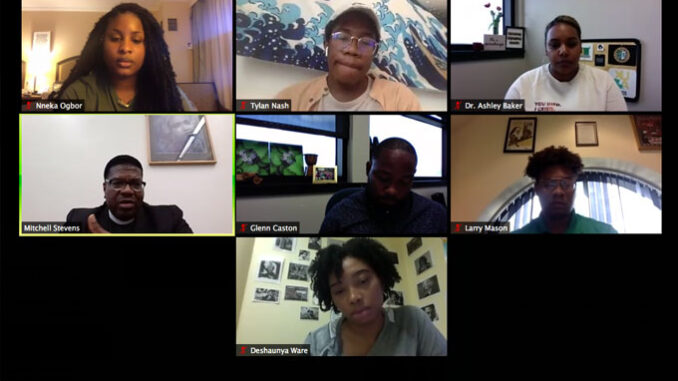
Nigell Moses Data News Weekly Contributor
A culmination of fear, anger and hope describes the emotional toll of racism and the injustices African Americans in the United States endure each day. Although African Americans account for 13-percent of the United States population, they comprise 28 percent of those killed by police this year. The continued incidences of police shootings in August of African American males after the murder of George Floyd has left many in the community searching for answers.
“We’re all impacted by this in some kind way,” said Tylan Nash, the Director of Diversity and Inclusion for Xavier University’s Student Government Association. The virtual public panel discussion on Black Lives Matter was organized by Xavier’s Office of Inclusion and Social Justice on Aug. 28th. “This could’ve been me, my brothers, my mother, my father, anybody that I know. I think it’s important we talk about this and process our feelings.”
The panel reflected on the most recent victims of police violence: 29-year-old Jacob Blake, who was paralyzed from the waist down after being shot in the back by a police officer in Kenosha, Wisc., and 31-year-old Trey Pellerin, who was killed by police officers in Lafayette, LA. The criminal history of the victims, the panelists pointed out, is often used to justify the crimes committed against them.
“The closer it gets, the more we start to process our feelings, because what we realize is that it’s not as distant,” said Glenn Caston, the Inclusion and Social Justice officer at Xavier.
The combination of both police brutality, and the disproportionate impact of COVID-19 on the African American community has worsened the overall state of mental health within the Black community, seven months into the Pandemic, the panelists said. Disconnected from normal daily activities and routines, the constant media images of police harassment, racial profiling and COVID-19 deaths has become an overwhelming burden for African Americans.
“When we separate ourselves from what’s heavy, what’s weighed on us, we separate ourselves from the triggers that are burdening our hearts,” said Rev. Dr. Mitchell Stevens, the Interfaith Chaplain for Xavier’s Campus Ministry.
Despite many being on the frontlines of the Black Lives Matter Movement attending protests and marches, there are other forms of activism the community can engage in, the panelists said.
“I think the best way that we can be activists is to point out the injustice whenever we are faced with it,” said Nneka Ogbor, the Associate Director of Diversity and Inclusion for Xavier’s Student Government Association.
Helping those in need is one way to direct frustration into positive action. Student leaders said they will work to organize hurricane relief for families in the state that have been affected by Hurricane Laura.
“Being able to just coordinate and understand this work is bigger than all of us, why not share the load and establish this coalition to be able to provide for people,” said Larry Mason, the President of Mobilization at Xavier 2.0 and the Coordinator of Community Initiatives.
Recommended For You.



Be the first to comment